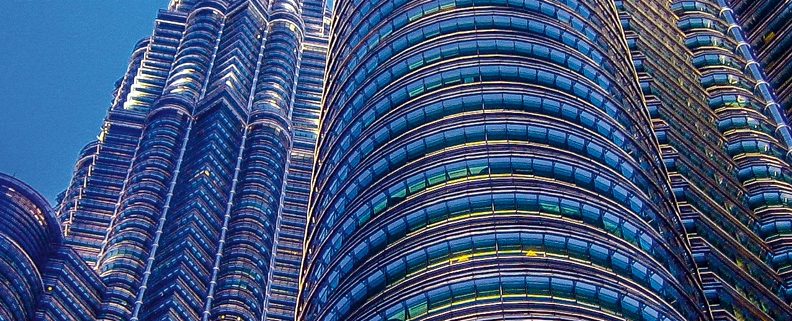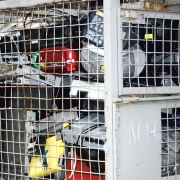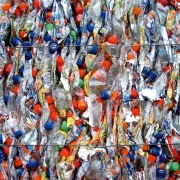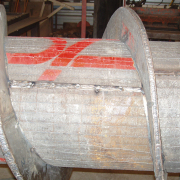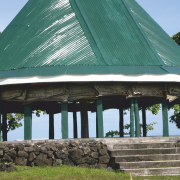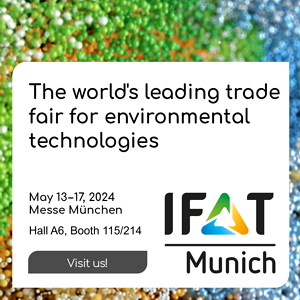Malaysia: Toward A Sustainable Waste Management
Population growth has led to an increase in generation of solid waste in Malaysia. According to the government, it has become a crucial issue to be solved.
In 2005, the waste generated in Malaysia amounted to 19,000 tons per day (recycling rate: 5 percent). Eleven years later, 2016, the quantity was 38,200 tons/day (recycling rate: 17.5 percent). As reported, food waste is a major component of generated waste (45 percent) and contains high organic compounds. Due to unseparated waste, more than 30 percent potentially recyclable materials such as paper, plastic, aluminum and glass are still directly disposed of in landfills. In addition, diapers are evolving into a major component (12.1 percent). This situation is set to change. Considering that 16.76 million tons (or 45,900 tons/day) of waste (household waste: 70 percent; commercial waste: 30 percent) is expected to be generated by nearly 30 million Malaysians in the year 2020, the Malaysian government plans to reduce the waste disposed of in landfills. By the year 2020, the reduction shall amount to 40 percent through 22 percent recycling and 80 percent intermediate treatment such as waste-to-energy, composting and material recovery.
Current Waste Management Technology
As landfilling is currently the ultimate waste disposal method that can deal with many types of materials, most of the garbage ends on landfill sites. As reported by Tey Jia Sin, Dr. Goh Kai Chen, Dr. Kek Sie Long and Ir. Dr. Goh Hui Hwang of the University Tun Hussein Onn Malaysia, most landfills in the country are small scale operations with varying designs. In addition, a lot of these sites are poorly maintained. Other disposal sites are the open dumpsites, where waste is illegally disposed of.
According to the Solid Waste Management and Public Cleansing Corporation (SWCorp Malaysia), there are only 14 sanitary landfills all over the country; 161 landfills are still in operation, while 141 are closed. As reported by SWCorp Malaysia, there are several incinerators in the country with a capacity of 75 tons/day in total. A facility for construction and demolition waste is able to treat 500 tons per day. Organic waste is treated in collaboration with Kitakyushu City Hall, Japan (500 tons/year), in Malaysian food waste facilities (anaerobic digester: 1,500 kilograms/day) and composting plants (150 kilograms/day).
The first waste-to-energy facility in Malaysia will be located at Taman Beringin in the capital city Kuala Lumpur; it is expected to start operations in 2019 with an estimated capacity of 1,000 tons/day. Furthermore, a waste-to-energy plant is under construction. Cypark Resources Berhad is diversifying into the less cyclical business of renewable energy (RE) generation and waste management concession business to strengthen its income generating capability. The company is investing to build this plant in Ladang Tanah Merah, Negeri Sembilan. According to the information, this facility will be able to produce 25MW of power from handling solid waste disposal and has the ability to increase capacity in the future.
The sustainable integrated waste management facility would encompass the following areas:
■ Collection and Disposal
■ Waste Receiving Facility (WRF)
■ Waste Segregation Facility (WSF) with material recovery/recycling facility
■ Fully Anaerobic Bioreactor System (FABIOS) Plant
■ Power Generation Facility which includes Biogas Power Plant and Waste-to-Energy Plant
■ Sanitary Landfill for commingled, inert solid waste and processed waste residuals
■ Environmental Treatment Systems including Leachate Treatment Facility
■ Salvaging Yard for combustible solid waste and recyclables
■ Administration and Support Facilities
■ Operations & Maintenance of Waste
■ Facility Infrastructural and
■ Ancillary Works
Recycling of Electrical and Electronic Devices
An increasing volume of electrical and electronic devices (e-waste) from private households is disposed of in open landfills every year. According to a project report about e-waste in Malaysia, which was encouraged by the Japanese Department for the Environment, the amount of e-waste grows by an average of 14 percent per year. Until 2020 around 1.17 billion devices respectively 21.4 million tons of e-waste will be gathered.
The first facility for the recycling of electrical and electronic waste should be put into operation in 2017. According to the supplier, German-based company Andritz MeWa, the plant is able to process annually around 300,000 old refrigerators and up to 60,000 tons of electrical and electronic scrap from private households, such as washing machines, household appliances, and ICT equipment including computers. Private company Shan Poornam Metals operates the first e-waste processing plant in collaboration with the public Department of Environment. The environmental authority should ascertain that 86 centers for collection are established across the country by 2018. Those centers pass e-waste on to recycling facilities in Seberang Prai in the federal state of Penang. So far there is no system for the collection and treatment of electrical and electronic waste from private households. Appropriate waste from the industry sector is handled according to regulations.
In August 2014, the Malaysian government announced plans to build an ecological industrial park in the Klang Valley. It is intended that the park will feature a primary industry and a waste generation center to enable primary industrial waste to be reused by secondary industries. At that time it was planned to start building the park in two years’ time.
Incentives
To strengthen the development of green technology, the Malaysian government provides incentives in form of investment tax allowance for the purchase of green technology assets and income tax exemption for the use of green technology services and system. There are also incentives for the establishment of Waste Eco Parks (WEP). More information is available at www.mida.gov.my/home/tax-incentives-for-green-industry/posts/.
Investors will find the official website of the Malaysian Investment Development Authority (MIDA) at www.mida.gov.my/home/. Its Business Information Center (BIC) at Kuala Lumpur‘s MIDA Sentral is a first-stop resource center with free access to useful and authoritative information on investment, trade, financing, productivity and services specifically pertaining to Malaysia’s manufacturing and services sector.
__________________________
SWCorp
The Solid Waste Management and Public Cleansing Corporation (SWCorp Malaysia) was established to complement and ensure the successful implementation of the National Solid Waste Management Policy. In general, the policy aims to provide a comprehensive, integrated, cost-effective, and sustainable solid waste management system in line with society‘s demand for environmental conservation and public well-being.
The Corporation was established under the Solid Waste Management and Public Cleansing Corporation Act 2007 (Act 673) and commenced operation on June 1st, 2008 under the purview of the Ministry of Housing and Local Government (MHLG). It has the power to administer and enforce solid waste and public cleansing management laws and matters related thereto. The role of the Corporation is to ensure that solid waste and public cleansing management services will be more efficient and integrated, as well as meeting consumers expectations.
__________________________
Photo: pixbay
GR 22017

